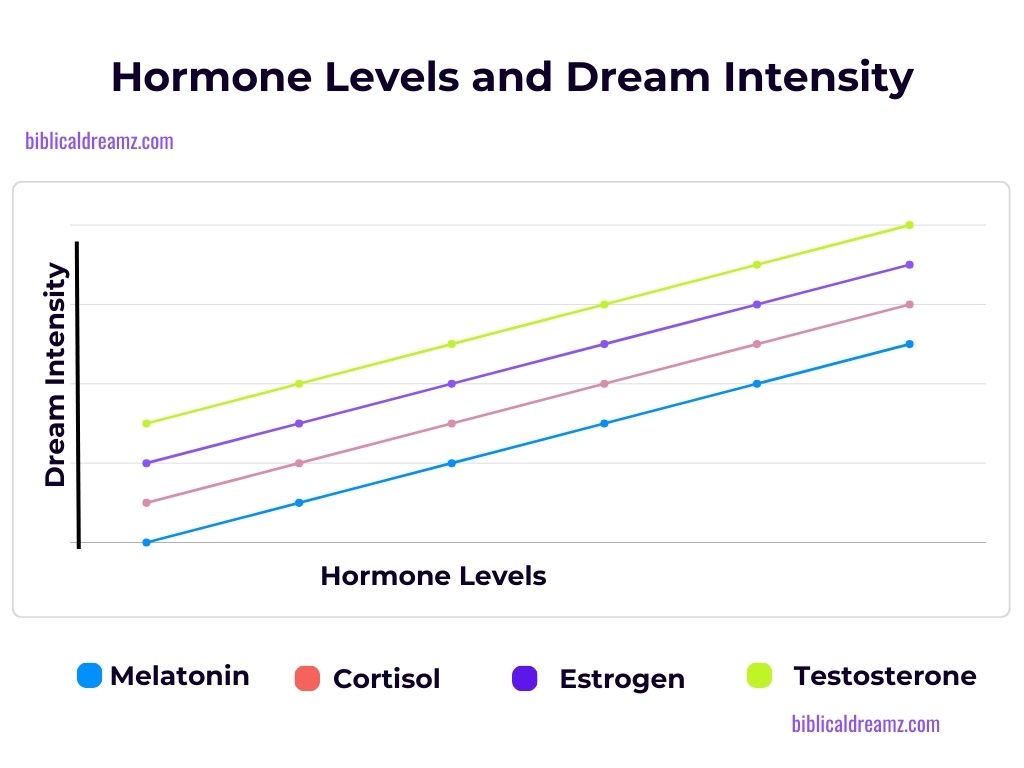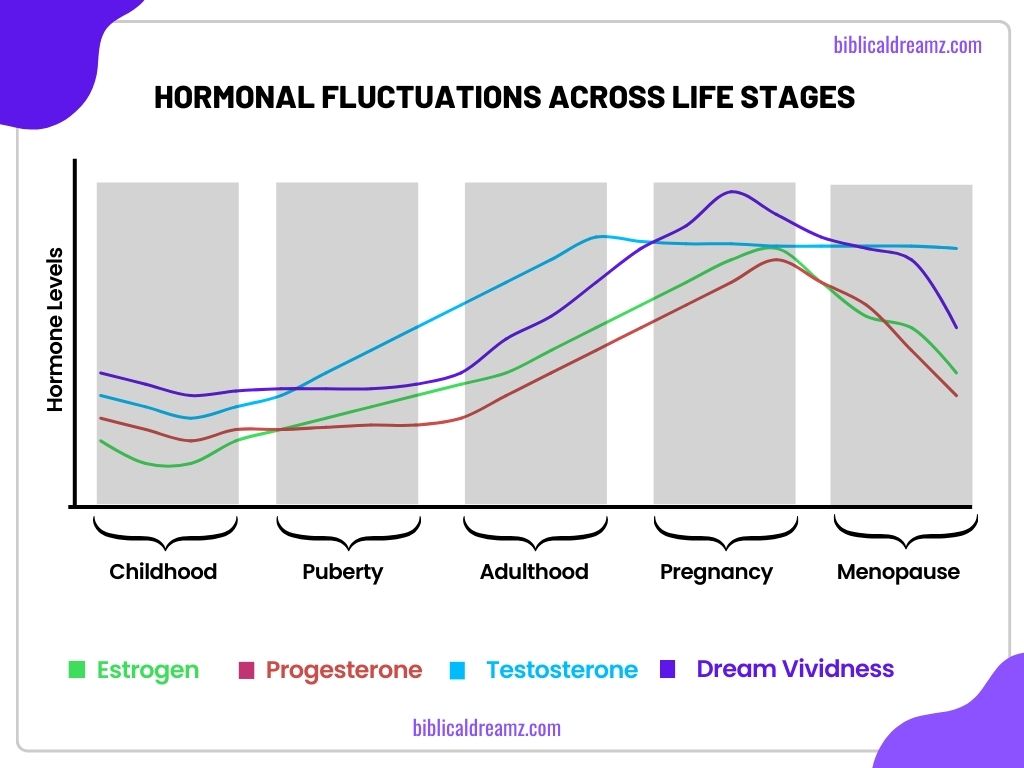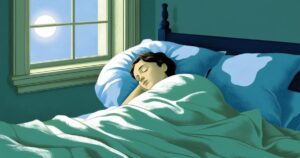Have you ever wondered if there’s a link between your hormone levels and the dreams you experience while asleep? Dreams, often a reflection of our subconscious, can be influenced by various factors, including hormonal changes.
This article delves into the intricate relationship between hormone fluctuations and dream patterns, offering insights into how these internal chemical messengers might shape the landscapes of our dreams.
Related: How Mental Health Influences Your Dreams
The Hormone-Dream Connection
Hormones are powerful chemical messengers in our body, playing a crucial role in regulating mood, health, and behavior. Their impact on our dreaming is a fascinating area of study.
Key hormones like melatonin, cortisol, estrogen, and testosterone have been found to have significant effects on the nature and intensity of dreams.
Hormone | Role in Body Get instant dream insights with our Free Dream Interpretation App | Effect on Dreams |
|---|---|---|
Melatonin | Regulates sleep cycle | Increases dream vividness and frequency |
Cortisol | Manages stress | Leads to stress-related dreams or nightmares |
Estrogen | Regulates female reproductive system | Enhances emotional and vivid dreams |
Testosterone | Regulates male reproductive system | Influences aggression and themes in dreams |

Related: How Does Your Diet Affect Your Dreams
1. Melatonin and Dream Vividness:
Melatonin, often called the ‘sleep hormone,’ regulates our sleep-wake cycle. Higher levels of melatonin, typically at night, can lead to more vivid and memorable dreams.
This hormone’s role in enhancing REM (Rapid Eye Movement) sleep, the phase where most dreaming occurs, is crucial in understanding dream vividness.
2. Cortisol and Stress Dreams:
Cortisol, the stress hormone, fluctuates throughout the day and can influence dream content. High cortisol levels, especially when stress or anxiety is involved, can lead to more intense and often unsettling dreams, sometimes manifesting as nightmares.
Related: The Impact of Radiation on Dream Patterns
3. Estrogen, Testosterone, and Emotional Dreams:
Fluctuations in estrogen and testosterone can also impact dreams. For instance, increased estrogen levels can intensify emotional dreams, making them more vivid and easier to recall. Similarly, variations in testosterone levels might influence the themes and aggressiveness of dreams.
Hormonal Changes Across Different Life Stages
Different life stages and conditions that involve hormonal changes, such as puberty, pregnancy, menopause, or stress, can lead to noticeable changes in dream patterns.
For example, pregnant women often report more frequent and vivid dreams, attributed to hormonal shifts during pregnancy.
Life Stage | Estrogen | Progesterone | Testosterone | Dream Vividness |
|---|---|---|---|---|
Childhood | Low | Low | Low | Low |
Puberty | Increasing | Moderate | Increasing | Moderate |
Adulthood | High | High | High | High |
Pregnancy | Very High | Very High | Moderate | Very High |
Menopause | Decreasing | Low | Moderate | | Moderate to Low |

Conclusion
The interplay between hormones and dreams is a complex and intriguing aspect of human physiology. By understanding how hormonal fluctuations can influence our dreams, we gain deeper insights into the mysterious world of sleep and the subconscious mind.
Remember, while hormones play a significant role, they are just one of the many factors that shape our dreamscapes.
This exploration into the realm of hormones and dreams aims to shed light on how these internal messengers can paint the canvas of our nightly visions. Whether it’s the vivid dreams under the influence of melatonin or the stress-induced nightmares driven by cortisol, the dance of hormones in our body significantly colors our dream experiences.
FAQs on Hormones and Dreams:
Can hormone therapy affect dreaming?
Yes, hormone therapy, especially involving estrogen or testosterone, can alter dream patterns, often making them more vivid or emotionally charged.
Do hormonal imbalances lead to nightmares?
Hormonal imbalances, particularly involving cortisol or melatonin, can contribute to nightmares or disrupted sleep, which in turn affects dreaming.
Is it possible to control dreams through hormonal regulation?
While direct control of dreams through hormonal manipulation is not typically feasible, understanding and managing hormonal levels can help in achieving better sleep quality, which may indirectly influence dream experiences.





